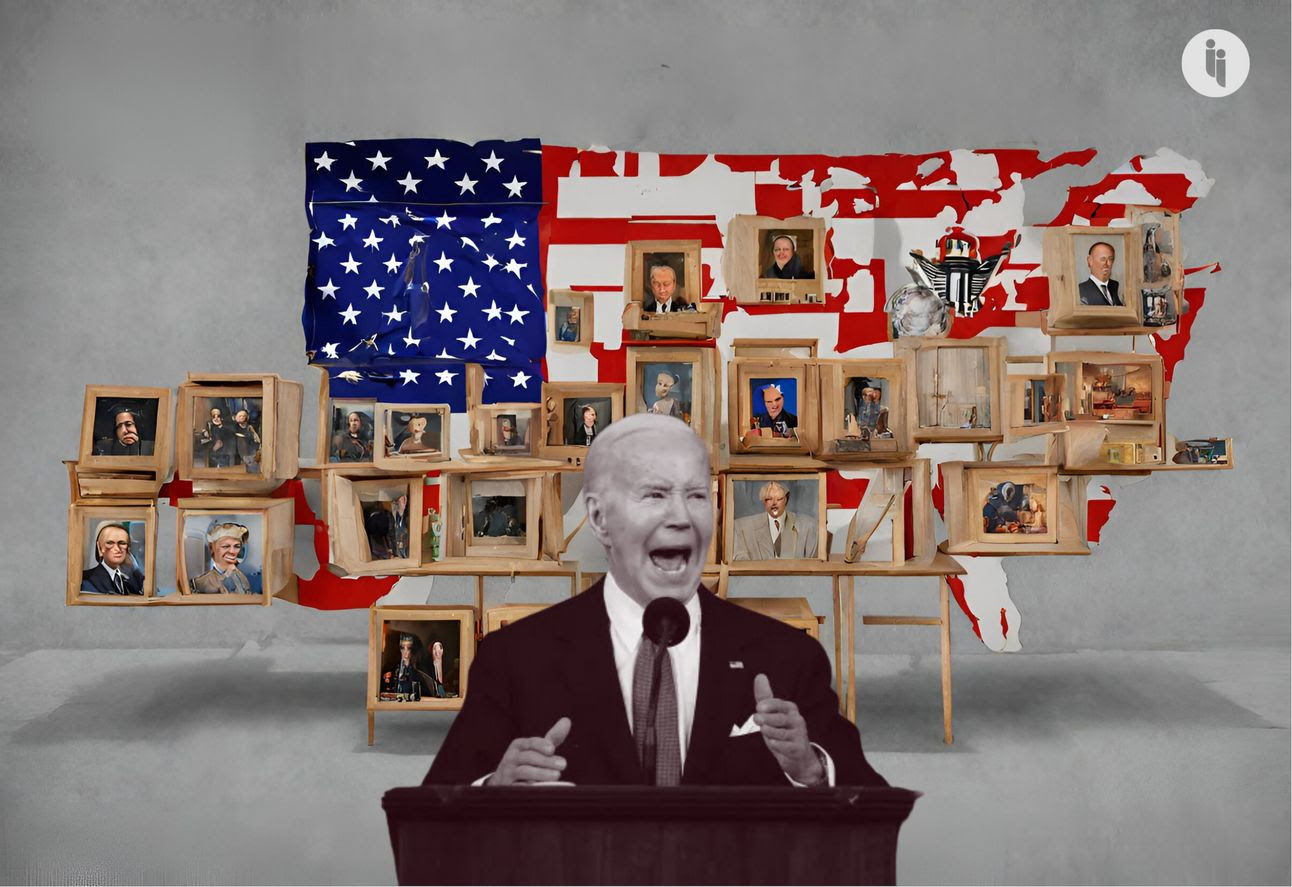US President Joe Biden delivered his last State of the Union address before November’s presidential election last night (Thursday evening local time in DC).
As ever, it was a chance for the president to address a joint session of Congress, a national audience at home, and capitals all around the world, on his administration’s achievements to date and his vision for what’s to come.
We’ll leave the politics to others, but here are four of the lines with the biggest geopolitical implications for the US and the world.
Stay on top of your world from inside your inbox.
Subscribe for free today and receive way much more insights.
Trusted by 99,000+ subscribers
No spam. No noise. Unsubscribe any time.
1) “Now it is we who face an unprecedented moment”
While the speech was pretty upbeat overall, Biden’s opening was grim, quoting from President Franklin D Roosevelt’s 1941 famous address to Congress. Drawing comparisons with WWII, Biden said “if anybody in this room thinks Putin will stop at Ukraine, I assure you, he will not”, and it’s “emboldening others who wish to do us harm”.
With a quick shout-out to NATO’s newest member Sweden (whose prime minister was in the audience), Biden called on the House to approve military aid to Ukraine, before addressing Russia’s president directly: “We will not walk away. We will not bow down. I will not bow down.”
2) “Turning setback into comeback. That’s America!“
Biden used his speech to reiterate an argument he and his national security adviser Jake Sullivan have often made: that revival at home is an integral part of meeting unprecedented challenges abroad. This linking of America’s domestic and international fortunes is also intended as an answer to doubts that US allies and adversaries alike have had around US capabilities and intentions.
3) “Tonight, I’m directing the U.S. military to lead an emergency mission”
Biden then moved on to the biggest announcement of the night: an emergency mission to establish a temporary pier on the Gaza coast to receive large ships carrying humanitarian aid. “No US boots will be on the ground”, he clarified.
Separate media briefings say the operation will run out of Cyprus, it’ll involve a floating pier, it could take 30-60 days to implement (in cooperation with partners), and it could add hundreds of extra truckloads of aid per day for the Palestinians. This raises all kinds of interesting questions, which we’ll delve into below.
But Biden made the announcement in the context of a speech that otherwise reiterated his three main views here: “Israel has a right to go after Hamas”, Israel also has “a fundamental responsibility to protect innocent civilians in Gaza”, and “as we look to the future, the only real solution is a two-state solution”.
4) “For years, all I’ve heard… is ‘China’s on the rise and America is falling behind’. They’ve got it backward. America is rising. ”
While the ‘they’ here was folks in DC – and Biden left the other implication unsaid (ie, that ‘China is falling behind’), it still sounds like a direct shot at Chinese President Xi Jinping, who reportedly told his officials at the height of the pandemic in 2020 that “the East is rising while the West is declining”.
Biden clearly wanted to remind folks that while the US appears consumed with the Middle East and Ukraine, he sees China as the longer-term challenge to US interests. Whether one agrees or not, Biden’s remarks are a reminder of how quickly the US view of China has flipped.
Wrapping it all up, he declared “there is nothing beyond our capacity when we act together”.
INTRIGUE’S TAKE
While his reflection on the world’s moment was grim and his take on America’s response was optimistic, there were no big shifts beyond his Gaza pier announcement, which raises three implications plus three questions.
On the implications, first – the decision to establish a new Gazan pier for aid suggests an understanding that this conflict, or at least the humanitarian disaster it’s triggered, isn’t ending any time soon.
Second, Israeli officials say they’re fully on board, but it’s hard to think of another example where the US has effectively broken its own ally’s blockade like this. And third, beyond the humanitarian objective, it’s clearly also an election year move to gird Biden’s left flank.
Then on the questions we’re now pondering, first: the focus is on what this pier helps bring into Gaza, but the thing about boats is they can move the other way, too – and inevitably that’ll open questions around what (or who) might be allowed a ride out. Eg, will the US run medical or other humanitarian evacuations?
Second, this new pier aims to get aid to Gaza’s shore, but it’s unclear what then happens with it. The US will want a plan to avoid its shipments triggering more chaos and violence, or ending up exclusively in Hamas hands.
And third, the president says there’ll be no US troops on Gazan soil, but they’ll be close, and that raises questions around how to ensure the operation’s security without expanding America’s own target surface area in the region.







